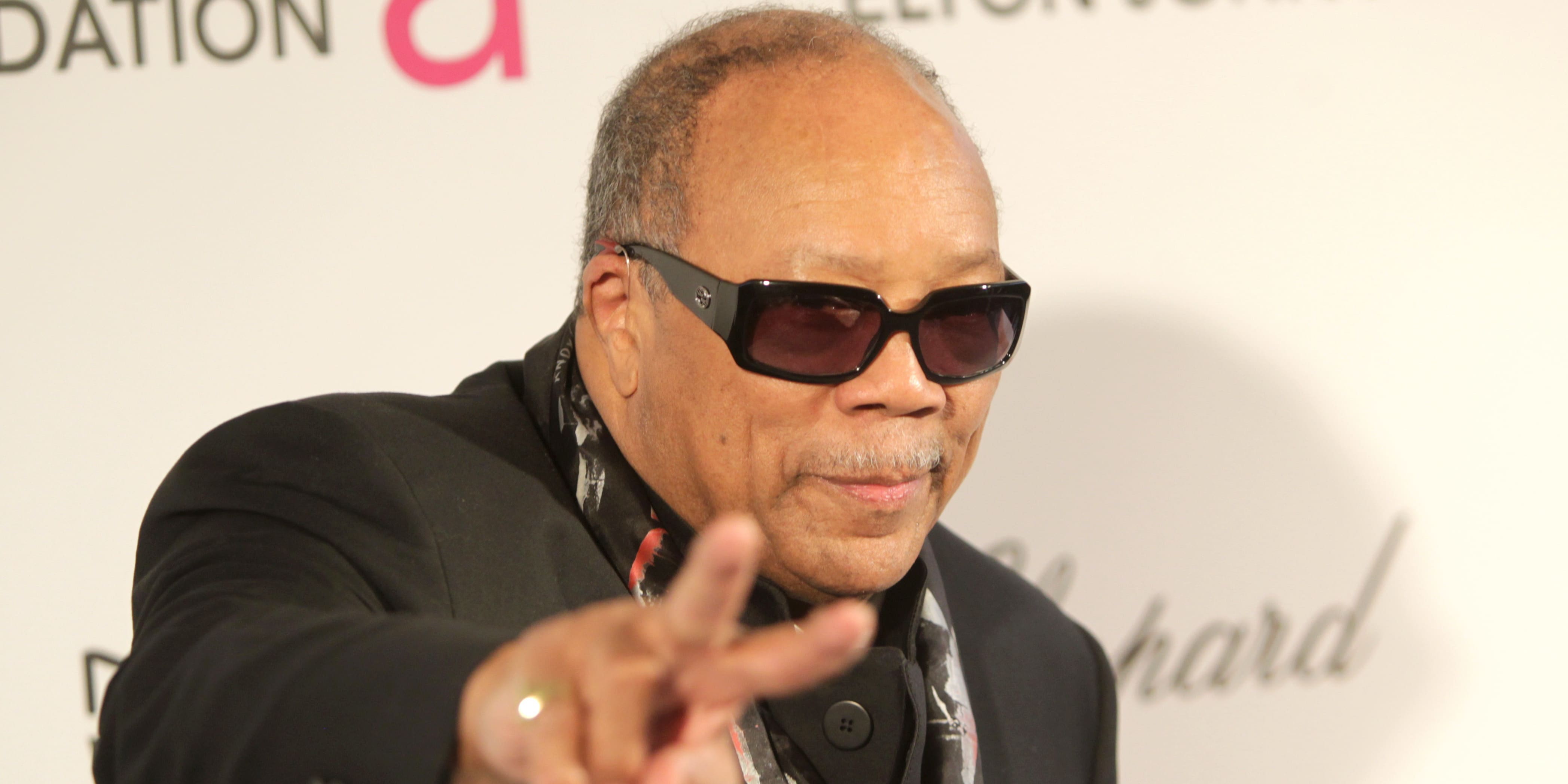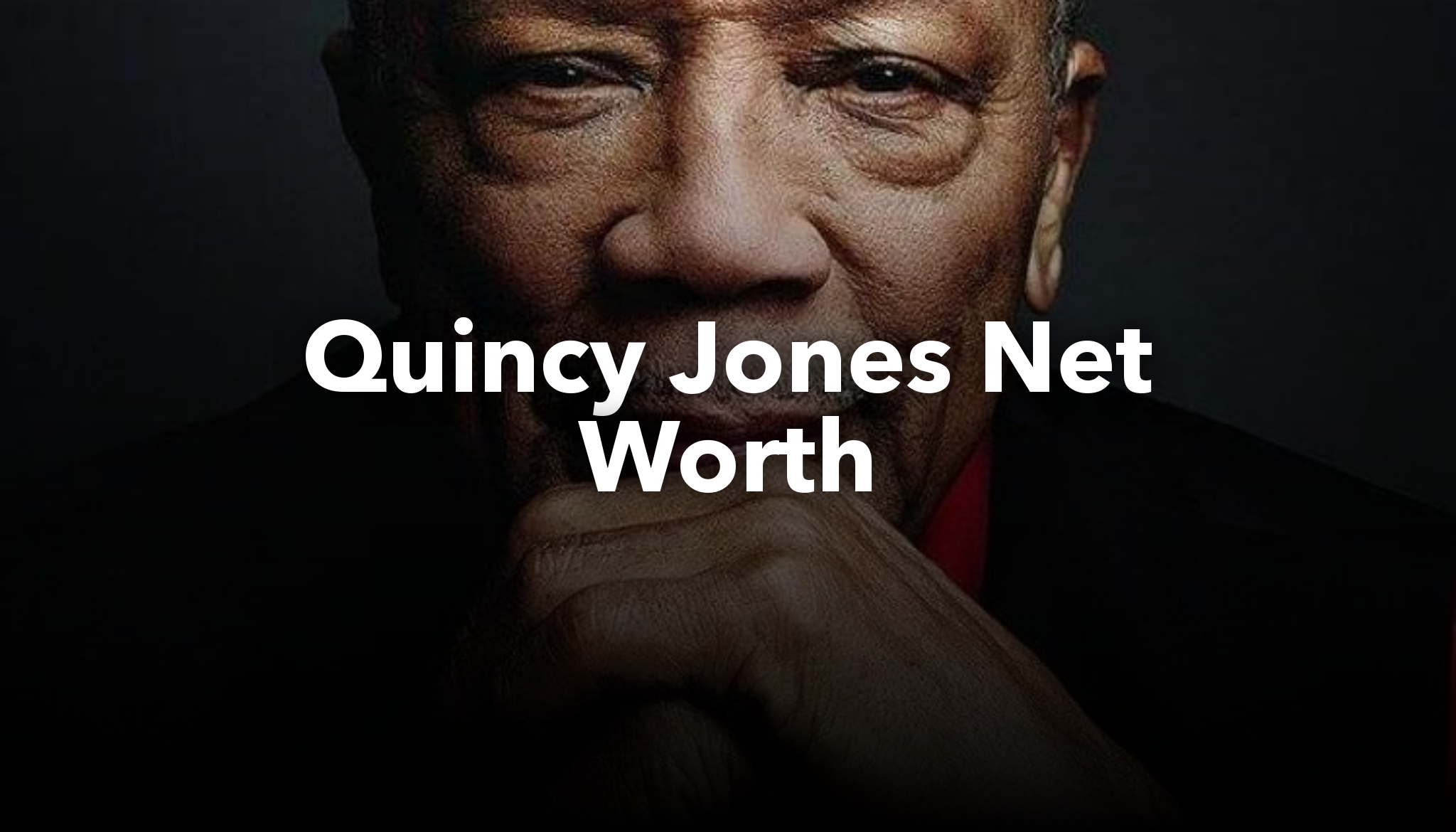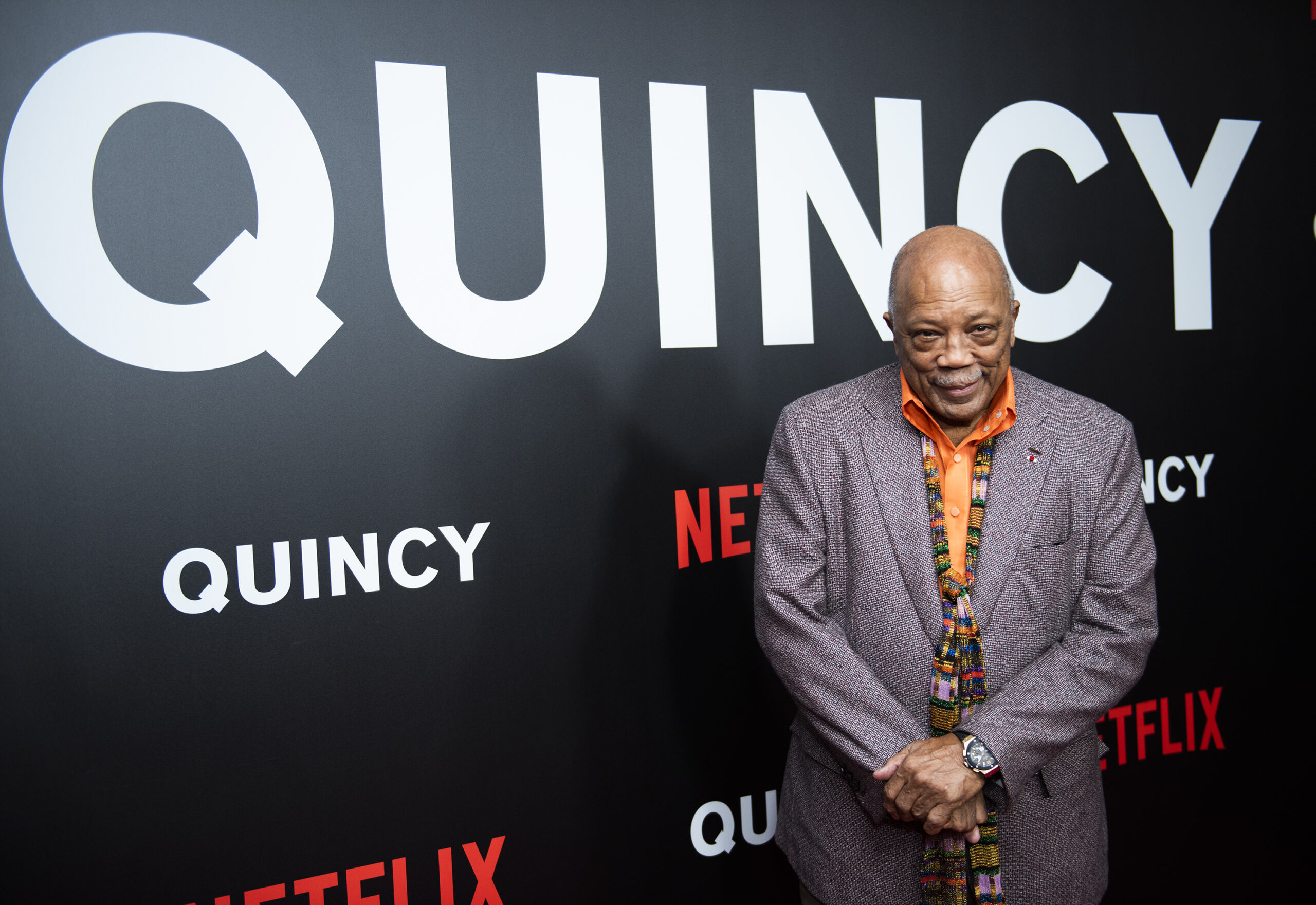How Much Is Quincy Jones Worth? A Look At A Legendary Fortune
Have you ever wondered about the financial standing of music's true giants, like how much is Quincy Jones worth? It's a question many people ask, perhaps curious about the rewards for a lifetime of extraordinary creative work. When you think about a figure who has shaped so much of the soundscape we know, it's natural to consider the scale of their achievements, and what that might mean in terms of wealth.
Quincy Jones, a name that echoes through studios and concert halls alike, really stands as a titan in the world of entertainment. His influence stretches across generations, touching nearly every aspect of popular music, and in some respects, beyond. From composing film scores to producing some of the most famous albums ever made, his touch has turned artistic visions into global sensations.
So, what does a career of such immense impact add up to? We're talking about a fortune that reflects not just talent, but also keen business sense and a knack for spotting groundbreaking opportunities. It's almost a story of how one person's passion and dedication can create something truly vast, both musically and financially.
Table of Contents
- Quincy Jones: A Life of Musical Greatness
- The Incredible Journey of a Music Maestro
- Unpacking the Sources of His Vast Fortune
- The Enduring Legacy and Its Financial Echoes
- Frequently Asked Questions About Quincy Jones' Wealth
Quincy Jones: A Life of Musical Greatness
Quincy Delight Jones Jr. has, in a way, lived a life that reads like a musical history book. Born in Chicago, Illinois, his path into music began quite early, showing a natural gift for instruments and composition. He started out playing the trumpet, and that, you know, led him to explore arranging and producing, which truly became his calling. His early experiences, often challenging, shaped his unique perspective and relentless drive to create. He has always been someone who pushes boundaries, and that's a big part of why he's so respected.
His professional journey kicked off in the jazz world, working with legends and quickly earning a name for himself as a brilliant arranger. This foundation in jazz gave him a deep appreciation for musical structure and improvisation, skills he would later apply to a huge range of genres. He moved into film and television scores, then into pop music, where he really made his mark on the wider public. It's truly amazing how he adapted his talents to so many different areas, always with that signature quality.
Personal Details and Bio Data
| Detail | Information |
|---|---|
| Full Name | Quincy Delight Jones Jr. |
| Date of Birth | March 14, 1933 |
| Place of Birth | Chicago, Illinois, USA |
| Occupations | Record Producer, Musician, Composer, Arranger, Conductor, Record Label Executive, Film & Television Producer |
| Years Active | 1950s–present |
| Notable Collaborations | Michael Jackson, Frank Sinatra, Ray Charles, Lesley Gore |
| Children | Seven, including Rashida Jones |
| Estimated Net Worth | $500 million (as of 2024, according to Celebrity Net Worth) |
The Incredible Journey of a Music Maestro
Quincy Jones' career, you know, spans more than seven decades, a truly remarkable stretch of time in any field, but especially in the fast-moving music business. He began his professional path as a teenager, playing trumpet and arranging for big bands. His early work with artists like Lionel Hampton and Dizzy Gillespie really showed his potential. He traveled the world, absorbing different musical styles, and that, in a way, broadened his creative outlook immensely. He was, in essence, building the foundation for what would become an incredibly diverse and impactful career.
His shift into becoming a record producer was a pivotal moment. He became a vice president at Mercury Records in the early 1960s, which was a huge deal for an African American executive at that time. This role gave him the power to shape artists' sounds and bring new talent to the forefront. He produced hits for Lesley Gore, like "It's My Party," showing his ability to connect with a younger audience, too. He was always, it seems, ahead of the curve, spotting trends and helping to create them.
The 1970s and 80s saw him reach new heights of fame, particularly through his work with Michael Jackson. The albums "Off the Wall," "Thriller," and "Bad" are, you know, legendary, and much of their success is attributed to Jones's production genius. He helped craft a sound that was fresh, exciting, and universally appealing. These records broke sales records and changed the music industry forever. His involvement was more than just technical; it was about shaping an entire artistic vision, which, apparently, resonated with millions.
Beyond pop, he composed scores for over 35 films, including "In Cold Blood" and "The Color Purple." These projects showcased his versatility and his deep understanding of how music can enhance storytelling. He also produced the charity single "We Are the World," which raised millions for famine relief in Africa. This project, in a way, brought together some of the biggest names in music for a common cause, and Jones was the one who helped make it happen. His ability to bring people together for a creative purpose is truly something special.
He has also been a powerful voice for social justice and racial equality throughout his life. He has used his platform to advocate for change and to inspire others. This commitment to making a positive difference, you know, adds another layer to his already impressive public persona. It's not just about the music; it's about the person behind it, too.
Unpacking the Sources of His Vast Fortune
When we look at how much is Quincy Jones worth, it's clear his fortune comes from a blend of diverse income streams, each one built upon his core musical talents. The primary driver, of course, has been his incredible work as a record producer. Albums like Michael Jackson's "Thriller," which remains one of the best-selling albums of all time, generated enormous royalties and fees. His involvement in such massive projects means he earned a significant share of the profits, too. That's a huge piece of the puzzle, really.
His work as a composer and arranger also brought in substantial earnings. He created music for films, television shows, and commercials, which provides ongoing residual income. Every time a movie he scored is shown, or a song he arranged is played, he earns a bit more. This type of income stream, in a way, builds up over time, providing a steady flow of money long after the initial work is done. It's a very smart way to build wealth in the entertainment business.
Beyond the creative side, Jones has been a shrewd businessman. He founded his own record label, Qwest Records, in 1980. This venture allowed him to sign artists, release their music, and control a larger portion of the revenue. Owning the master recordings and publishing rights for certain works is a very powerful way to generate long-term wealth. It means he gets a piece of every sale, every stream, and every license, which, you know, really adds up.
He also expanded into various media and entertainment ventures. He launched Vibe magazine, a popular publication focused on urban music and culture. This showed his foresight in recognizing the growing influence of hip-hop and R&B. Such entrepreneurial efforts, apparently, diversify his income sources beyond just music production, adding layers to his financial strength. He's not just an artist; he's a very smart investor, too.
Furthermore, his personal brand and reputation have opened doors to other opportunities, like endorsement deals and speaking engagements. Being a respected figure with a vast network means he can command high fees for appearances and collaborations outside of traditional music projects. This, in some respects, leverages his fame and credibility into additional revenue streams. It's a testament to his enduring appeal, too.
The concept of "much" in relation to his worth, as my text describes, signifies a large amount or degree. His fortune is indeed a "large quantity or amount," indicating a "substantial extent or level" of financial success. It's not just a little bit; it's a huge sum that reflects his significant impact. The money he has accumulated, you know, truly indicates a notable abundance compared to what is considered ordinary, and that's a big part of why people are so interested.
The Enduring Legacy and Its Financial Echoes
Quincy Jones' legacy is, quite simply, immense, and it continues to generate financial returns even now. His influence on music production techniques, his ability to blend genres, and his knack for creating timeless hits mean his work remains relevant. Albums he produced continue to sell and stream, ensuring ongoing royalty payments. This is, you know, a key aspect of long-term wealth in the music industry: creating something that lasts. His sound is still very much alive in today's music.
The impact of his collaborations, particularly with Michael Jackson, cannot be overstated. "Thriller" is still a cultural touchstone, and its continued popularity means the financial benefits keep flowing. Every time a song from that album is played on the radio, used in a movie, or streamed online, a portion of that revenue goes back to the creators, including Jones. It's a bit like a never-ending annuity, really.
His role as a mentor and discoverer of talent also adds to his lasting influence. Many artists and producers look up to him, and his methods are studied in music schools. This kind of influence, in a way, solidifies his position as a foundational figure in modern music. It means his ideas and techniques continue to inspire new generations, too.
Jones has also been a champion for education and philanthropic causes. His work through the Quincy Jones Foundation aims to connect young people with opportunities in music and arts. This commitment to giving back, you know, further strengthens his public image and ensures his name remains associated with positive endeavors. It's a holistic approach to a career, really, combining art, business, and social responsibility.
According to Celebrity Net Worth, Jones's fortune has been estimated at $500 million. This figure, you know, is often mentioned when discussing his wealth, reflecting the staggering amount he has amassed over his long and distinguished career. It truly is a fortune that stands as a testament to his enduring talent and business smarts. He has, apparently, built something truly special that continues to resonate.
Learn more about Quincy Jones' musical journey on our site, and link to this page for more insights into music industry legends.
Frequently Asked Questions About Quincy Jones' Wealth
What was Quincy Jones' net worth?
According to Celebrity Net Worth, Quincy Jones' fortune has been estimated at a remarkable $500 million. This figure reflects his extensive career across many facets of the music and entertainment world. It's a very significant amount, truly showing the scale of his success.
How did Quincy Jones make his money?
Quincy Jones earned his vast fortune through a combination of highly successful ventures. His primary income sources include his legendary work as a record producer, especially for iconic albums like Michael Jackson's "Thriller." He also earned considerable amounts as a composer for films and television, an arranger for numerous artists, and through his own record label, Qwest Records. His business acumen in various media ventures also played a big part, too.
Who inherited Quincy Jones' fortune?
Quincy Jones has amassed a staggering fortune for his seven children, including his well-known daughter, Rashida Jones. While specific details of his estate planning are private, it is understood that his wealth is designated for his family. He has, in a way, built a lasting financial legacy for them.

Quincy Jones Net Worth - Net Worth Post

Quincy Jones Net Worth | nichesss

Quincy Jones Net Worth 2023: What Is The Legend Worth?